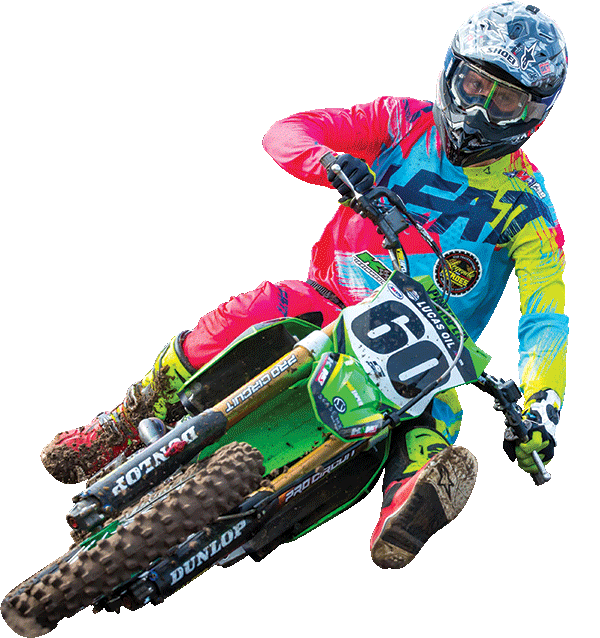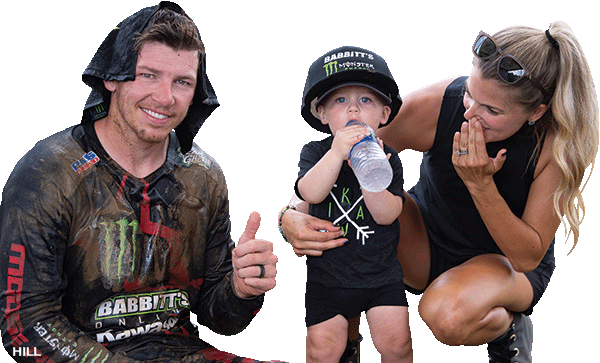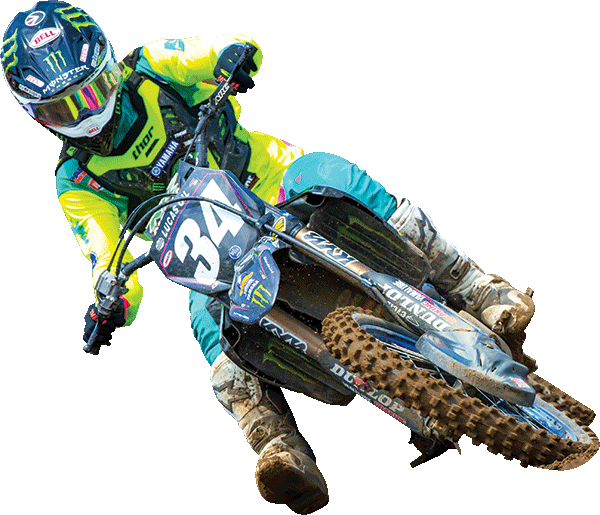

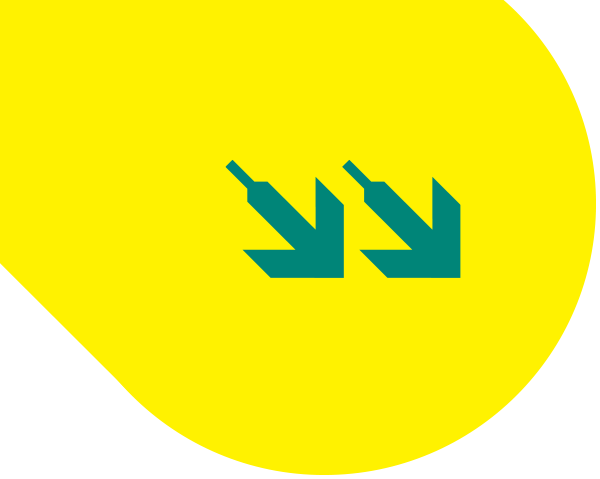
veryone knows there’s a big gap between being a privateer and a factory-backed racer, but the specific differences aren’t always talked about. To learn more, we talked to Freddie Noren, who started the season as a privateer before getting the call to fill in at JGR/Yoshimura Suzuki Factory Racing.
“The power is amazing on the Suzuki, and so are the options I have to try different things and make changes. The same goes with handling and suspension. The options are endless. If I have an issue with something, I don’t have to figure out how to fix it—someone else can do it. As a privateer, I would scratch my head sometimes.”
The MECHANIC
“Although Ben [Schiermeyer] is a very good-looking guy, he’s not as good-looking as my wife. He does know a thing or two more about the bike, though [laughs]. As a privateer, it was mainly my wife and me working on the bike. Now I don’t have to worry about anything. I don’t think my wrenching skills are bad, but Ben’s are next-level.”
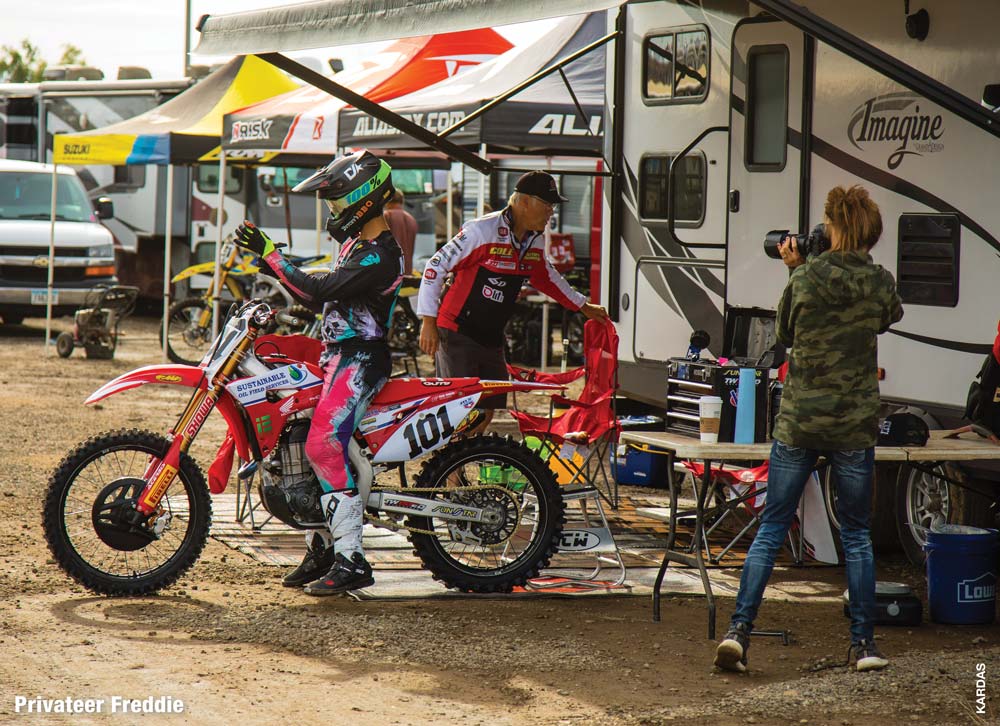
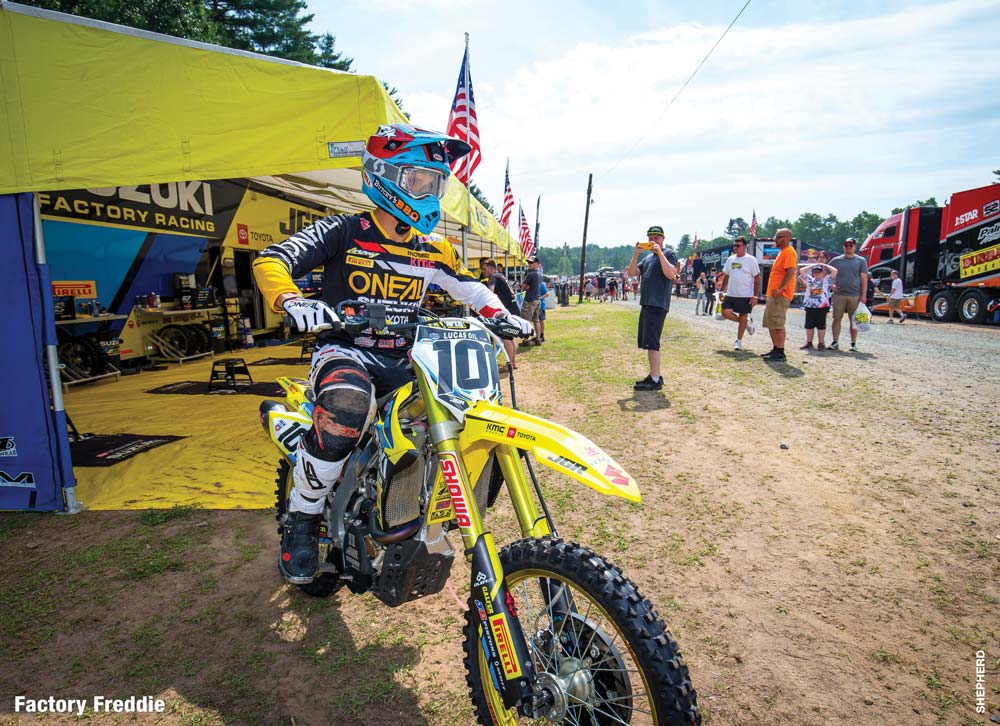
“Obviously, it’s a major difference. I have everything and all of the knowledge in the world now, whereas being on my own I was limited. My knowledge only goes so far. It’s huge.”
The TRANSPORTATION
“Now I don’t have to sit in a car for hours and hours and can focus on training and recovery. It’s less draining being able to fly. It’s funny because driving, you think you’re just sitting there, but it’s pretty exhausting.”
The FACTORY SETUP
“The camper was nice because I could sleep at the track, but having the rig is super nice. Everything is taken care of. There’s a spot for all my gear and personal items, and there’s a TV upstairs so I can watch the 250 motos while I’m getting ready to race. I also don’t have to worry about cleaning the rig [laughs]. Someone else is setting up the tent and taking the bike through tech. I don’t have to be at the track on Fridays anymore. I also have more time to enjoy the experience of racing, rather than worrying about having to take care of everything.”
The RECOVERY
“This is much easier. I can come in and take an ice bath, someone will bring me food, and I don’t have to work on my bike between motos.”
The WORK WEEK
“Making progress during the week is so much easier. Everything is taken care of, and all I have to do is show up. It lets me focus on my riding, racing, training, and recovery. I can focus on the task rather than all the other jobs I had to do before I even went racing. There’s more time now to get training in, and I have more energy and excitement now that I have a factory ride.”
The EXPECTATIONS
“They’re higher. I put a lot of pressure on myself, but I also need to perform for JGR/Yoshimura Suzuki Factory Racing. I have a habit of setting too high of expectations on myself. However, knowing that I have the best and everything is taken care of, I know I can succeed.”
The STRESS
“It’s less stressful as far as getting to the races, but in the performance category, I put higher expectations on myself. Sometimes I worry too much about going fast, which hinders me a little bit, but overall it’s less stressful riding for a factory team.”
The FANS
“Interaction with the fans has definitely gone up. I gained 3,000 followers on Instagram just getting the ride. I enjoy how people are interested in the bikes and meeting the riders. I get a lot more requests for goggles and jerseys now [laughs].”
BY THE NUMBERS
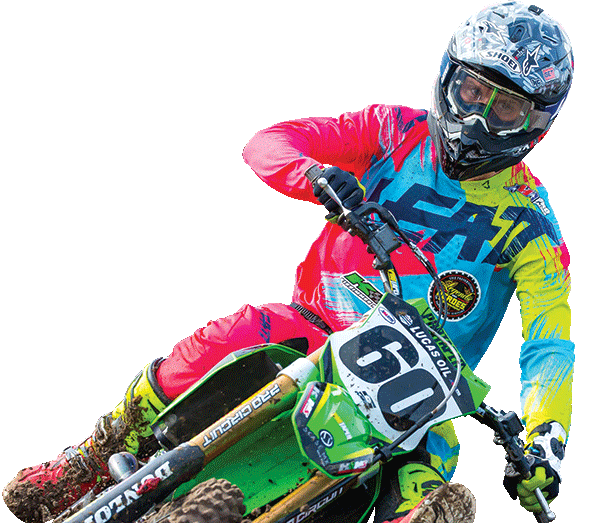
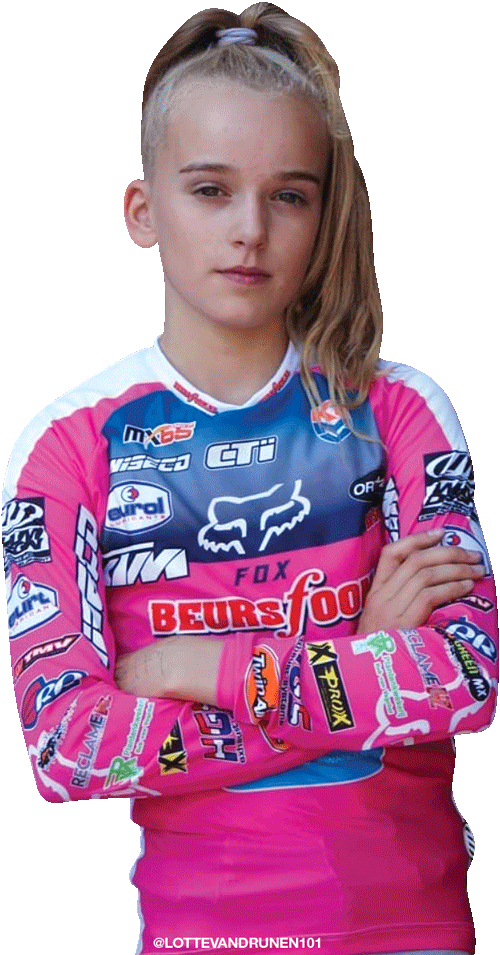
BY THE NUMBERS
